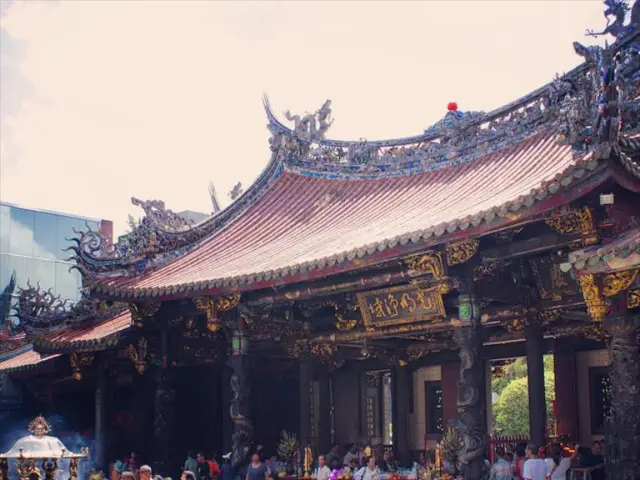Venezuelan Government Criticizes "Recurring U.S. Aggression," Contemplates Spain Diplomatic Ties
Venezuela Slams US for Imposed Sanctions amid Election Dispute
In the heart of Lisbon, Portugal, tensions escalate as the Maduro government condemns Washington's imposition of individual sanctions against high-ranking Venezuelan officials. The move comes after the US Treasury's Office of Foreign Assets Control (OFAC) slapped sanctions on 16 Venezuelan individuals from judicial, security, and electoral bodies for allegedly obstructing a free and fair election in the Caribbean nation.
The Maduro administration denounces these actions, labeling them as a "renewed aggression" and a demonstration of the US' "total disdain for international law." Caracas further accuses its US counterpart of secretly attempting to impose regime change, asserting that the "Venezuelan people's dignity" will prevail over any destabilization plans.
Thursday's sanctions hit Supreme Court (TSJ) President Caryslia Rodríguez and four other TSJ justices, prosecutor Luis Dueñez and judge Edward Briceño, who respectively requested and approved an arrest warrant for US-backed former candidate Edmundo González, National Electoral Council (CNE) Rector Rosalba Gil, Armed Forces Commander Domingo Hernández, and National Assembly Vice President Pedro Infante. The blacklisted individuals are now barred from entering the US, and any assets they own in US territory are frozen. With this latest round, the US Treasury Department has sanctioned over 140 Venezuelan officials.
In addition to targeted sanctions, Washington has imposed coercive measures against Venezuelan banks, mining enterprises, and especially the oil industry. Analysts and multilateral organizations have criticized these measures, pointing to their devastating effects on the Venezuelan economy and human rights impact. The sanctions followed the Biden administration's backing for the hardline opposition's victory claims in the July 28 presidential elections.
Tensions between Caracas and Washington have persisted since the elections, which were labeled fraudulent by the US and various international observers. The CNE proclaimed Maduro the winner with 52 percent of the vote, a victory that was later upheld following a Supreme Court review. However, the CNE did not publish the customary broken-down voting totals.
The Venezuelan opposition, led by far-right María Corina Machado, refused to recognize the outcome and claimed that González won by a landslide in an online purported set of electoral tallies. The US and regional allies, including Argentina and Chile, have supported the opposition's stance and rejected the official results. In contrast, Russia, China, and other Latin American countries grouped in the ALBA alliance have congratulated Maduro on his reelection and condemned foreign meddling in Venezuelan affairs.
Strained Relations with Spain
The fallout from the July 28 contest has also led to strained relations between Venezuela and Spain. Venezuelan Foreign Minister Yván Gil announced the recall of ambassador to Spain Gladys Gutiérrez for consultations and summoned Spanish ambassador to Venezuela Ramón Santos Martínez for a meeting on Friday afternoon. The latest controversy stemmed from comments by Spanish Defense Minister Margarita Robles who referred to the Latin American nation as a "dictatorship."
Insights
In the aftermath of President Trump's return to the White House, US-Venezuela relations have experienced a complex evolution. While Trump's administration has been critical of the Maduro regime, particularly after the elections, it has also pursued diplomatic outreach, such as the January 2025 envoy Richard Grenell's visit to Caracas.
However, sanctions against Venezuela, including electoral fraud and post-election repression, have been tightened. Additionally, the US Treasury's decision to revoke Chevron's license to operate in Venezuela in March 2025 raised concerns.
Internationally, the fraudulent elections have led to widespread criticism of the Maduro regime, with the US at the forefront. Despite these tensions, Venezuela's government has tried to improve its international standing through diplomatic efforts.
Humanitarian and immigration issues remain significant, with the debate over Temporary Protected Status (TPS) for Venezuelans persisting. The Trump administration's move to terminate TPS for Venezuelans has faced resistance from US lawmakers.
- The Maduro government in Venezuela has strongly criticized the US for imposing individual sanctions on high-ranking Venezuelan officials, labeling it as a demonstration of US' "total disdain for international law."
- Tensions between Venezuela and the US have persisted after the July 28 elections, with Caracas accusing its US counterpart of secretly attempting to impose regime change.
- In Lisbon, Portugal, the Venezuelan Foreign Minister Yván Gil announced the recall of ambassador to Spain Gladys Gutiérrez for consultations due to strained relations between Venezuela and Spain, following Spanish Defense Minister Margarita Robles' reference to Venezuela as a "dictatorship."
- Besides targeted sanctions, the US has also imposed coercive measures against Venezuelan banks, mining enterprises, and especially the oil industry, causing significant negative impacts on the Venezuelan economy and human rights.
- The US Treasury's decision to revoke Chevron's license to operate in Venezuela in March 2025 has raised concerns regarding US-Venezuela relations.
- Humanitarian and immigration issues, such as the debate over Temporary Protected Status (TPS) for Venezuelans, continue to be significant, with the US lawmakers resisting the Trump administration's move to terminate TPS for Venezuelans.
- In the heart of politics and general news, fire incidents, accidents (including car accidents), and crime-and-justice issues have surfaced, adding to the multifaceted challenges that sports teams and officials must navigate amid escalating tensions in war-and-conflicts regions like Venezuela.

![Visuals showcase a person identified as [Name] in a controversial setting, which has sparked intense debate among the public. The striking image depicts [Name] engaging in a questionable activity, causing a stir and raising significant questions about their character and intentions. The image has gained widespread attention, with many expressing surprise and concern over the situation portrayed. In response to fresh targeted sanctions, Caracas condemns U.S.'s disregard for international law.](https://asb-media.info/en/img/2025/04/29/1240642/jpeg/4-3/1200/75/image-description.webp)







